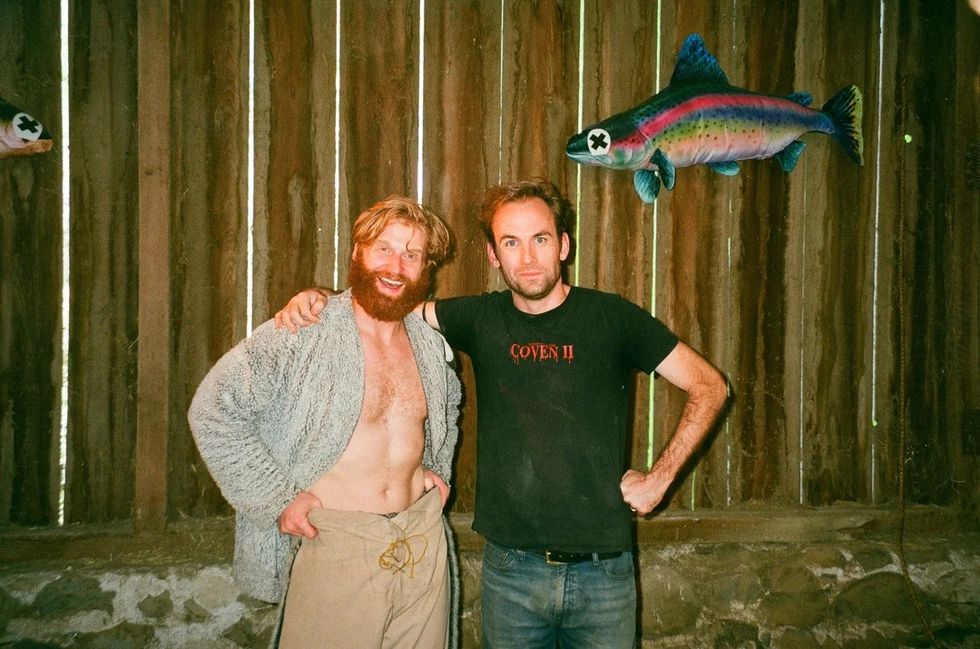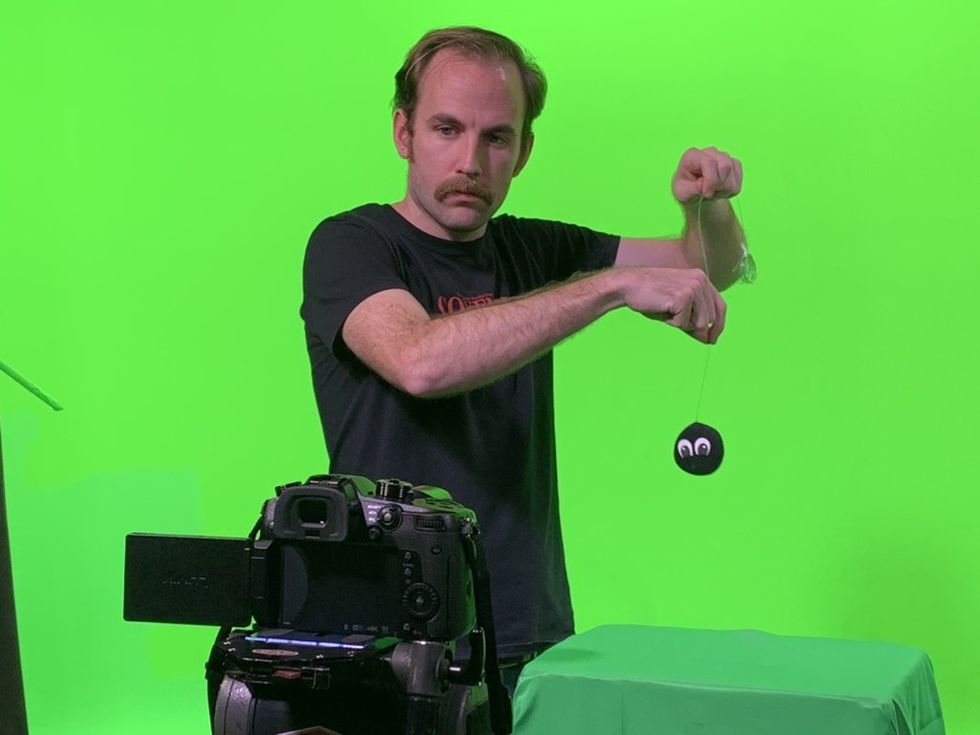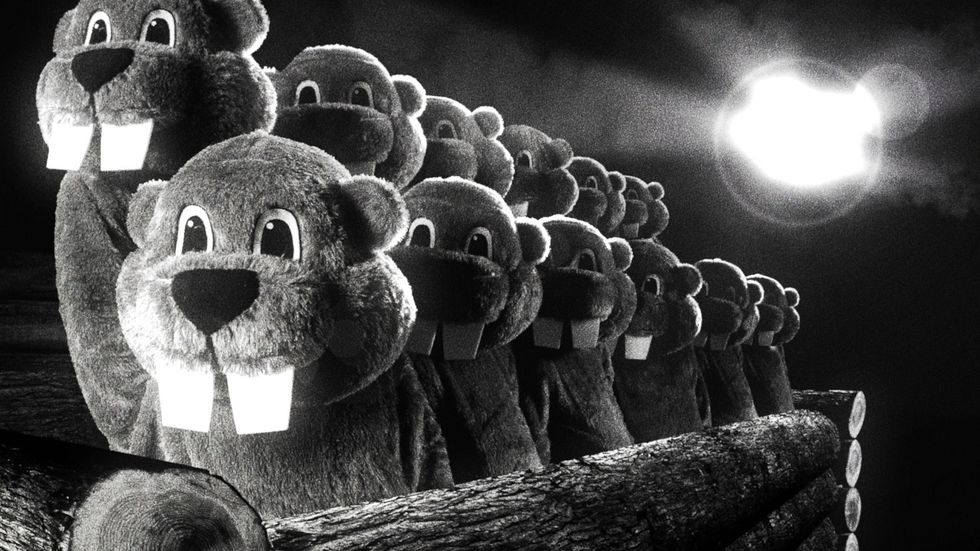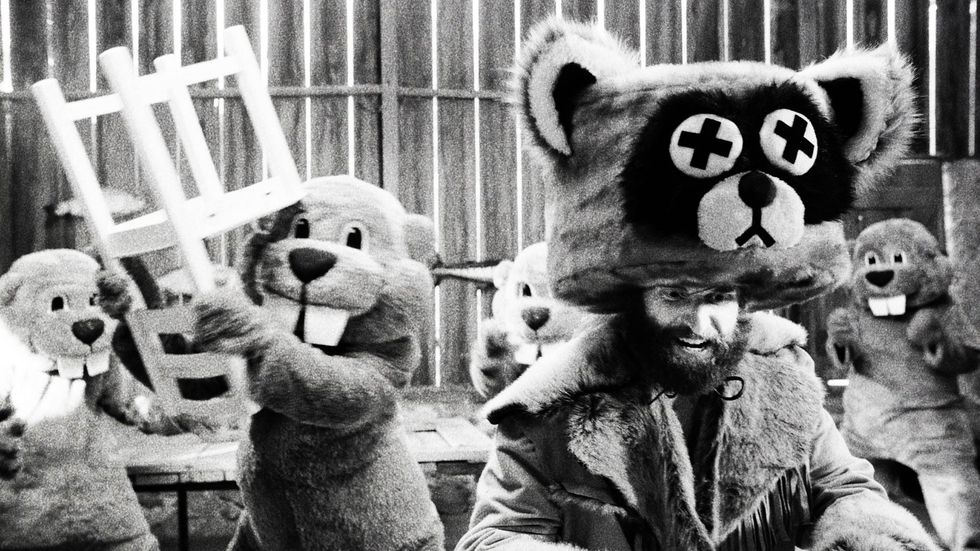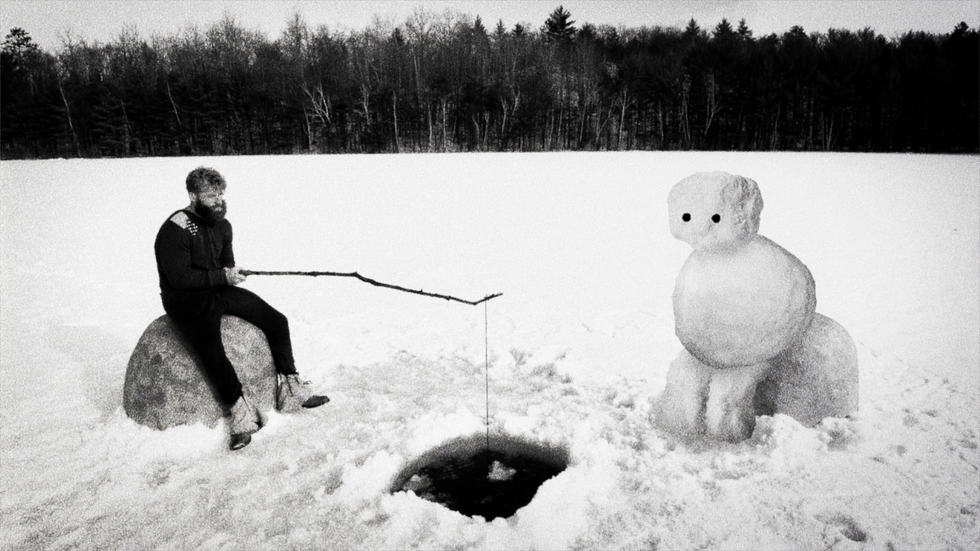Here's How 'Watchmen' Made That Amazing Black and White Episode
Watchmen showrunner Damon Lindelof reveals how they created the emotional and flashback-heavy "This Extraordinary Being" episode.
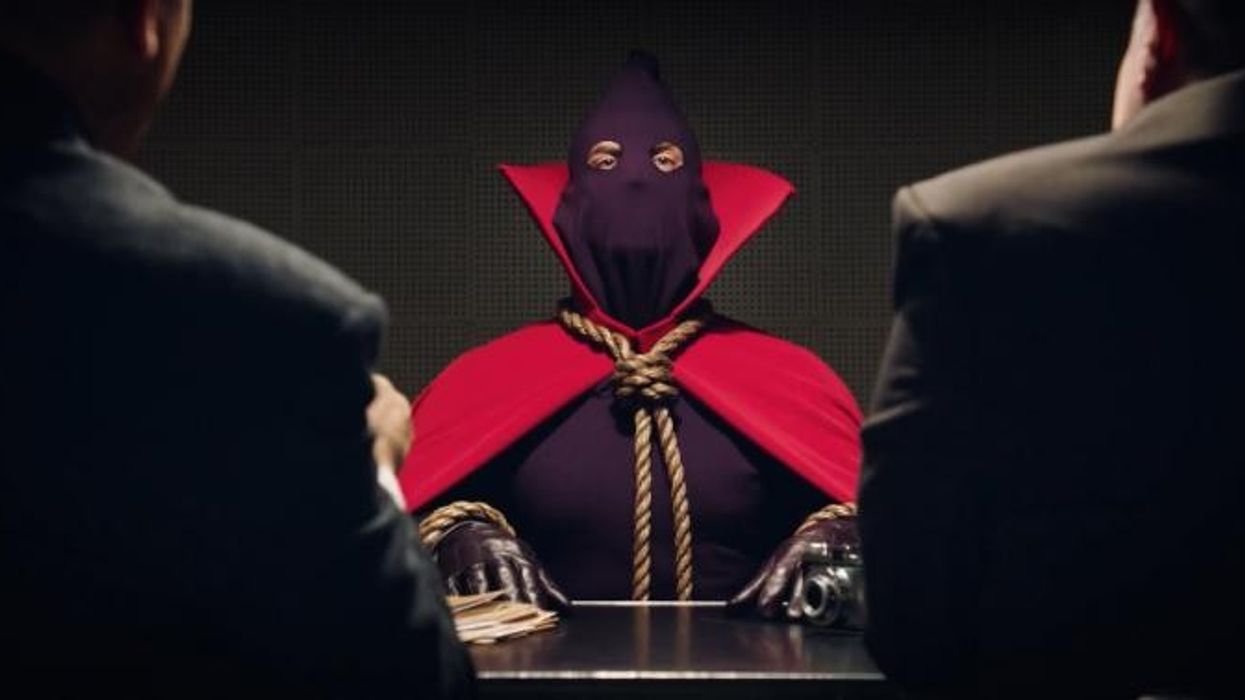
In recent weeks, Watchmen surpassed its comic book origins to become more than just a complicated superhero show -- it has tackled racism in America and the very real, very powerful themes of generational trauma head-on.
The most recent installment, titled "This Extraordinary Being,” is an expose disguised as a flashback. It chronicles whitewashed history in black and white, after Regina King's character, Angela, overdoses on another character's -- Will's -- memories (because Nostalgia). And the episode also deals with institutionalized racism at its core.
"Being" focuses on the mask behind the mask. The idea that Hooded Justice was not a white man, but an African-American cop who knew the only way to make a difference -- to truly have justice -- was disguising himself twice.
Lindelof told The Washington Post:
“I’ve always wondered, for 30 years, not just who was Hooded Justice, but why didn’t they reveal his identity?” Lindelof said. “All the other Minute Men are on a first-name basis [in the comics]. [The other heroes] call Comedian, Eddie; Captain Metropolis, Nelson; and Mothman, Byron — but they don’t even know what Hooded Justice’s first name is. That means he never took off his mask. And I asked myself, why? What was he hiding? And the answer just seemed ….he was a black man. Because in 1938, if you were a black man who was a vigilante, if anyone knew you were black, they wouldn’t consider you a hero. They would murder you in the street.”
So how did this episode come to light? And what problems came to the forefront when they tried to make it?
The episode was directed by Stephen Williams. The cinematography here is designed to service the story and its thematic message, which is especially gripping and resonate. Through the use of oners and some "Texas Switches," Williams was able to swap out the characters of Will Reeves with Angela all in one shot.
This echoed how the persecution of one generation affected the current one. According to Lindelof, it was Williams who conceived of the body-switch oners.
“That’s the way that Stephen Williams wanted to shoot it, because these were subjective memories and we were going to be doing these swaps between Jovan and Regina, so that we could continue to remind the audience that Angela is actually having the subjective experience of walking in her grandfather’s literal shoes. He said the best way to do that would be with no cuts.
I was like, ‘Whoa, ok.’ He said ‘It’s not going to be an uninterrupted shot like Birdman, but each one of these vignettes I think I can do as one-ers. And as proof of concept, I’m going to go out with the DP and we’re essentially going to block out on my iPhone each scene with stand-ins, and I’ll show you what I’m going to do.’ And he did just that. And when I saw his blocking, I was like, ‘Alright, vaya con dios, this feels like it’s going to work.’”
It was a subtle way to hint how deep the roots of inequality and violence go.
And the use of black and white helps sell the flashbacks and the past setting. But HBO initially was worried about the black and white:
“It wasn’t written in the script as being black and white," Lindelof explained. "But then we told HBO that was our intention and that there would be bursts of color to evoke memories that Will was having from Tulsa ’21, because that memory, that trauma was so vivid and it was bleeding into all his other memories. And HBO was like, ‘Let us have a think on that,’ and then they came back to us and said, ‘If it’s just for this one episode, we’re cool with it as a stylistic choice.’”
It's no surprise that a network had reservations about its big-budget series having an episode in black and white. Especially if that show is Watchmen, one that thrives on colors popping through -- like blood ("human bean juice") on a yellow smiley face pin.
But lucky for us, HBO and their execs trusted Williams and Lindelof's vision and let the episode move forward.
Cord Jefferson co-wrote the episode with Lindelof. Jefferson found a deeper meaning behind everything added by the direction and story choices. In an interview with The Washington Post, Jefferson said:
“The idea that put-upon white guys are the ones who would invent superhero identities and be the ones seeking justice outside of the courts is kind of absurd when you think about it...They’re the ones for whom all those courts are working. The first person who would want to don a mask and a cape and go out seeking justice in a different way that was satisfactory to them, it makes total sense that it’s a person of color.”

Each week, we see the mysteries and drama deepen -- all the while delivering a roller coaster story of intrigue and emotional beats.
We can't wait to see what's next.

